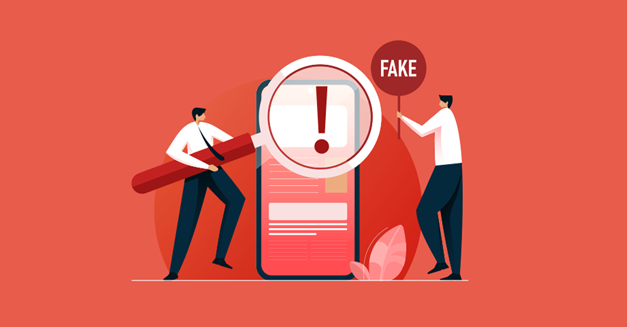Positive Vs. Negative Feedback – How Not To Respond
Feedback is a crucial performance driver and a terrific way to develop your leadership skills. Both positive vs negative feedback can be beneficial because it makes you aware of necessary adjustments.
Negative criticism can be difficult to handle and useless when given incorrectly.
Even though all of us have experienced receiving criticism, which is frequently softened by politeness, neither giving positive vs negative feedback nor accepting criticism is an easy feat.
However, if given in the right circumstances and at the right time, feedback could be beneficial and even a life-improving experience.
Feedback is a crucial performance driver and a terrific way to develop your leadership skills. Both positive vs negative feedback can be beneficial because it makes you aware of necessary adjustments.
However, how do you respond to any sort of criticism if you’re the one receiving it?
You can proceed by doing the following actions to learn how to respond to unfavorable as well as favorable criticism while accepting change and placing a priority on growth:
Difference Between Positive And Negative Feedback

Even while complaints and unfavorable replies can be painful, they should be considered as helpful criticism. These are signs of dissatisfied customers, which suggest that they had higher expectations from you.
Negative feedback reveals what you need to do or improve so that you may better meet their demands, while positive feedback highlights your strong points.
Responding To Positive Vs Negative Feedback
For the greatest impact, bear in mind the following while replying to positive feedback:
-
Thank the Reviewer

It would be impolite of you not to thank the reviewer for their kind words about your business after they just left a comment or review!
Always give the reviewer your sincerest gratitude first, so they’ll know their thoughtful gesture wasn’t forgotten. After all, they weren’t required to offer you a positive review or any input.
Make it a personal gesture and express your gratitude no matter if it’s positive vs negative feedback. Reference the specifics of what they said, such as your agreement if they mention one of your best products or stellar employees.
-
Respond quickly to Positive Reviews
After a purchase, visit, or special experience, customers are more likely to leave a review. As a business owner, you understand the value of completing things on time.
Leaving a positive review unanswered for months makes it appear that you don’t care about it, despite your consumer’s concern about you at the time.
You demonstrate your appreciation for the consumer by reacting as quickly as possible—it’s a simple action that will accompany your words of gratitude. Otherwise, the customer would be informed that they were ignored if you waited too long to respond.
If you don’t stay at the forefront of their minds, they’ll probably have forgotten about you as well.
-
Keep It Short
Keep your comments brief and to the point, especially when it comes to positive vs negative feedback.
No one enjoys reading long responses. Keep your message succinct and to the point, if you value your loyal customers.
Your comments may lose their impact if you speak too much, and you may even come across as overly eager. Simple and direct is always better.
-
Always Show Your Authentic Self
Don’t act like a robot because most people think it’s not cool for robots to pose as humans online!
Customers can immediately distinguish between a cold, impersonal automated response and a warm, sincere human connection. The very least you can do is respond to this person politely after they spent time talking about your business. Keep it brief, but don’t forget to add some details or personality.
-
Encourage them to Engage
Responding to positive and negative feedback is fantastic, but you should include a tiny call-to-action. Make it look and sound effortless. You can ask them to spread the word about your service, book a follow-up appointment, or follow you on social media.
It’s all up to you and what you want to accomplish with your business. Even so, it’s a good idea to seize the moment and encourage reviewers to take further action.
Responding to Negative Vs Positive Feedback
While we know we cannot make you feel better, let’s discuss some useful tips for utilizing critical feedback to enhance performance:
-
Don’t Take It Personally
When you receive negative vs positive feedback, this ought to be the first commandment you follow. Ask yourself what a critical comment implies. If someone says something unfavorable about you or the business, does this imply that you’re a lousy boss or a terrible business?
Unlikely, in all honesty. Even if it is harsh, the comments should be viewed as honest insight from people who care about the business. In addition, this comprises coworkers who help increase productivity, performance, and the office atmosphere from their position and viewpoints.
-
Ask The Right Questions

Exactly how reliable is the feedback? Is there any merit to the critique, or is it just a misunderstanding on the part of the customer? Is the company’s growing consensus that things must be done better? Asking the correct questions is critical when evaluating a message.
Your initial answer to critical remarks should be a question. This demonstrates your interest in the situation and prevents you from immediately expressing any negative emotions you may have been ruminating about and overthinking.
And it shows you where to explore for potential answers while also assisting you in properly appreciating and evaluating the issue.
-
Avoid Impulse Responses
Refrain from responding right away when someone makes a harsh statement. Allow yourself time to reflect, observe things from the point of view of a commentator, and then decide on your approach.
However, please react within a few days. Negative feelings left unchecked can spread like a virus throughout the brand image.
-
Don’t React Defensively
When you’re reviewing comments, it’s normal to feel a little attacked when you hear negative vs positive feedback. Even though it’s natural to feel threatened, you have control over how you respond to the reviewer.
Avoid responding with “that’s inaccurate” or “no, you’re wrong” when someone says something that’s erroneous. Take a deep breath, then respond slowly and thoughtfully.
You’ll be able to process the positive and negative feedback if you give yourself some time. A person’s statements can be misunderstood if they are interpreted incorrectly. Give yourself some time to ponder before responding.
-
Ask For Feedback Often, And Don’t Let It Ruin Your Day

You learn to accept constructive criticism when you go out of your way to solicit honest feedback from others who interact with your business. Moreover, if you ask for input more frequently, you’ll receive it in smaller, more digestible chunks.
Positive feedback should not be overshadowed by negative feedback. And don’t forget businesses that don’t fear criticism is considered as more resilient than those that surround themselves with ‘yes sayers.’.
Conclusion
Being open and receptive to client positive vs negative feedback isn’t always simple or enjoyable. Customers pleased with a product or service become brand advocates, which is a great tool to use.
Over time, keeping track of client feedback is the key to a successful customer feedback program.
You can do that with Xoopah, So that your business can grow and meet the needs of an increasing number of consumers; we assist you in gathering client feedback, putting it to good use, and monitoring your progress over time.
Access an all-in-one platform that helps manage customer evaluations, online interactions, and the online reputation of the company & its services for small and medium-sized organizations.
Customers of Xoopah can manage customer relations with ease on a single platform that is integrated to give businesses access to manage:
-
Online Surveys
Positive Vs Negative Feedback FAQs
Why is customer feedback important?
It is vital that you get feedback from your customers to help guide your decisions and impact the development of new products and services. It’s critical to gauge how happy your present consumers are. It’s priceless to learn how customers feel about your product, customer service, and business as a whole.
What are the benefits of feedback?
Feedback not only boosts employee morale but also teaches us more about our personalities, our traits, our flaws, how we behave, and how others are affected by what we do. Additionally, it promotes self-development and develops self-awareness. Not all criticism has to be complementary.
What is the purpose of feedback?
It makes it easier for you to comprehend what is required of you and what constitutes successful performance. It makes it possible for you to advance. Information on your learning is provided. It helps you to have a positive outlook on your training and motivates you.
Why is reputation management so important?
A company can quickly build confidence through effective reputation management. Therefore, favorable reviews can encourage potential clients to have even more faith in the company. An organization with a solid reputation is seen as more reliable than rivals.






